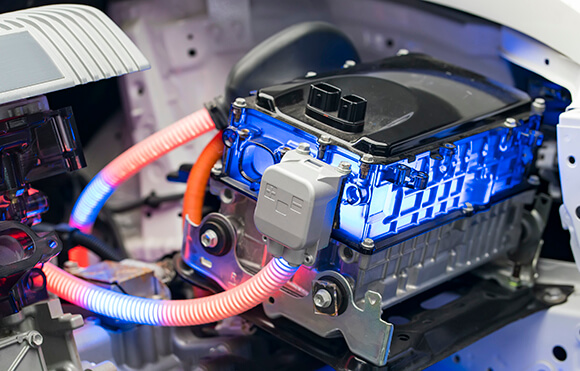How Long Does an EV Battery Last?
10/11/2025 00:00:00by Mark McKenna10/11/2025 00:00:00How Long Does an EV Battery Last?Bluedrop Services
Electric vehicles (EVs) have gained popularity in recent years due to their environmental benefits and lower running costs. One of the most common questions prospective EV buyers have is: how long does an EV battery last? To answer that, it's important to understand how EV batteries work, how they age, and what factors influence their lifespan.

How Do Electric Vehicle Batteries Work?
EV batteries are typically lithium-ion (Li-ion) batteries, similar to those used in smartphones and laptops but much larger and more robust. These batteries store electrical energy and deliver it to the electric motor, which drives the wheels. A battery pack is made up of many individual cells grouped into modules, all managed by a battery management system (BMS) that ensures safety, efficiency, and longevity by regulating temperature, charge, and discharge rates.
Do EV Batteries Worsen Over Time?
Yes, like all rechargeable batteries, EV batteries degrade slowly over time. This degradation doesn't mean they stop working, but rather that their capacity to hold a charge diminishes gradually. For example, a new EV with a 250-mile range may drop to around 220 miles after several years. Battery degradation is influenced by various factors, including usage patterns, climate, and charging habits.
How Long Does an EV Battery Last?
On average, EV batteries are designed to last between 8 to 15 years or 100,000 to 300,000 miles, depending on the make, model, and how the vehicle is used. According to recent data, most EVs retain at least 70–80% of their original battery capacity after 8 years of use. Tesla, for instance, reports that its batteries lose only about 10% capacity after 200,000 miles.
Manufacturers have made significant progress in improving battery durability, and many EVs on the road today are performing well beyond early expectations.
Are EV Batteries Covered Under Warranty?
Yes, most EV manufacturers provide long-term warranties specifically for the battery. These typically range from 8 to 10 years or 100,000 to 150,000 miles, whichever comes first. Warranties often guarantee a minimum battery capacity (e.g., 70%) during the warranty period. If the battery drops below this threshold, it may be replaced or repaired under warranty.
Examples:
- Tesla: 8 years or 100,000–150,000 miles (depending on model), with a minimum 70% retention.
- Nissan: 8 years or 100,000 miles.
- Hyundai: 10 years or 100,000 miles.
What Can Impact an EV Battery's Lifespan?
Several factors can influence how quickly an EV battery degrades:
- High Temperatures: Extreme heat can accelerate battery degradation, especially if the vehicle is parked in direct sunlight without thermal management systems.
- Frequent Fast Charging: DC fast charging generates more heat and can strain the battery if used excessively.
- Deep Discharging: Regularly letting the battery drop to very low levels (e.g., under 10%) can negatively impact lifespan.
- High Mileage and Heavy Loads: Consistently driving long distances or carrying heavy loads puts more stress on the battery.
- Poor Maintenance: Although EVs require less maintenance than traditional cars, software updates and BMS monitoring are important for battery health.
There are also a number of things you can do to help extend EV battery life.
Can You Replace an EV Battery?
Yes, EV batteries can be replaced, though it's not often necessary within the vehicle's first decade of life. The cost of replacement varies widely, ranging from £5,000 to over £12,000, depending on the vehicle and battery size. However, prices are expected to drop as battery technology evolves and economies of scale improve.
Some manufacturers also offer refurbished or remanufactured batteries at a lower cost, and there is a growing aftermarket for EV battery services.
Conclusion
EV batteries are built to last and are protected by extensive warranties. While they do degrade over time, most drivers won’t notice significant losses in range for many years. With proper care and smart charging habits, EV owners can enjoy reliable performance and long-term savings. As battery technology continues to improve, EVs are becoming an even more viable and sustainable alternative.
EV’s have come a long way since they were first introduced and are becoming much more widely available. If you have or are considering a fleet of EV vehicles for your business, contact our team of experts for a fleet insurance quote and we will be happy to advise on how to protect your battery from damage.
Return to blog menuWant to find out more about Bluedrop's Fleet Insurance?
Call our friendly team now for the right insurance cover - at the best price
+441489780491
Calls recorded for training and quality.



 Privacy and Cookie Policy
Privacy and Cookie Policy